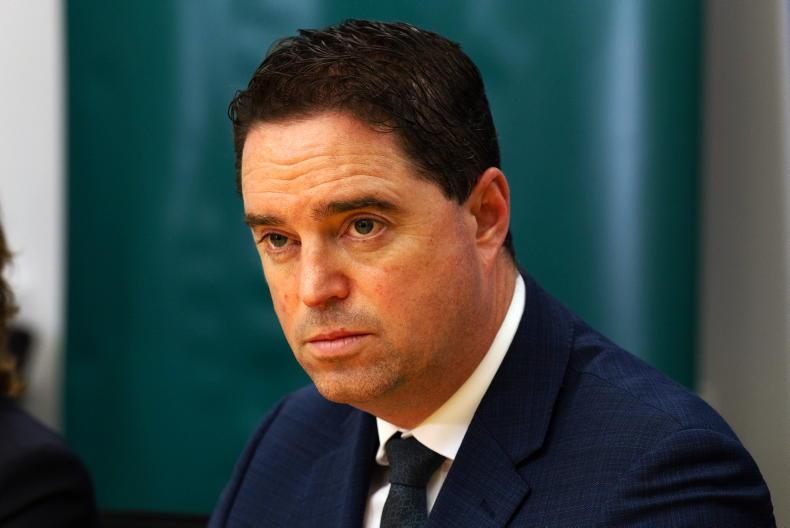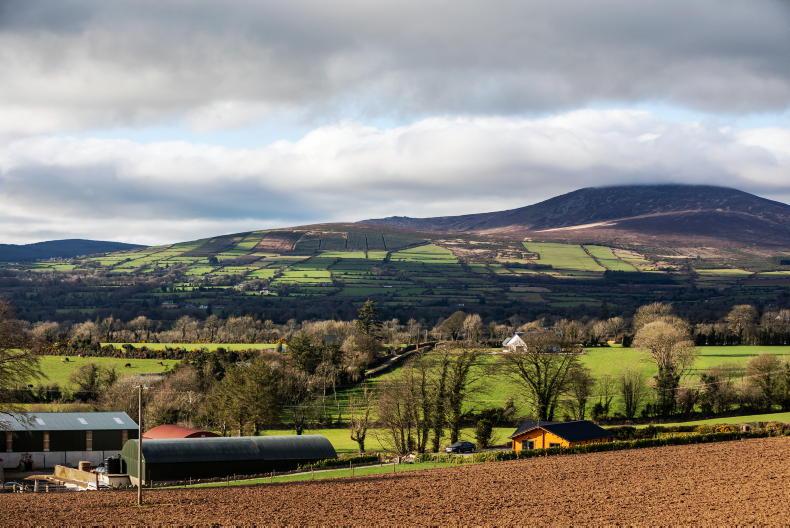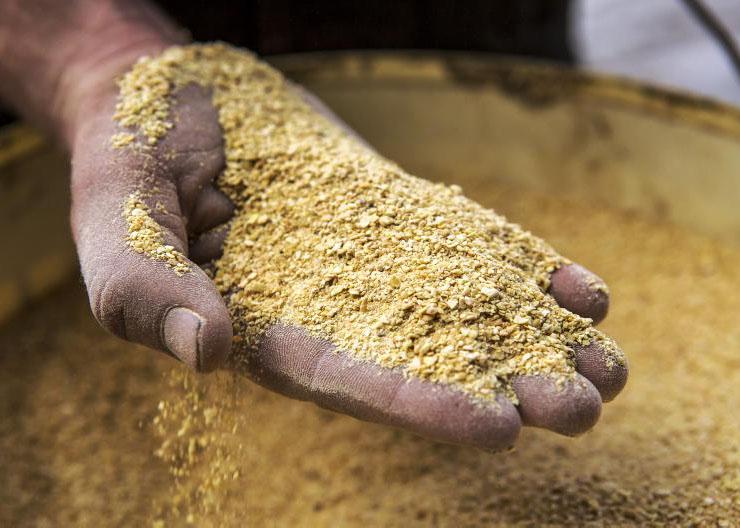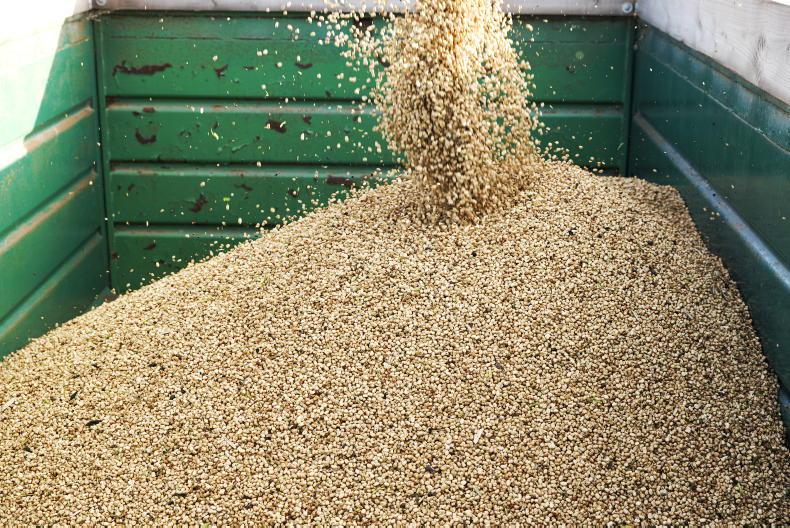Jo O’Hara’s Implementation of the Mackinnon Report has been delivered with “advice to the minister on the implementation of the ‘ways forward’ proposed by Jim Mackinnon in his review of forestry licences in November 2019”.
Minister Hackett has taken ownership of the report by establishing Project Woodland to “tackle issues in forestry in Ireland and drive forward the planting of trees.”
She acknowledges the importance of timber production, but also emphasises non-wood aspects including biodiversity, the environment, carbon capture and community enjoyment.
Since the Mackinnon report was delivered, O’Hara acknowledges “some notable progress” on legislation, staff recruitment and strengthening the Forestry Appeals Committee (FAC). Notwithstanding pressures on resources due to Covid-19 and Brexit, she says the pace and progress of legislative change had not been matched by other recommendations made in the 2019 Mackinnon review.
“The Department now needs to act swiftly to address weaknesses in project management and communications, establishing a clear pathway to delivery of the Mackinnon recommendations,” O’Hara says.
She places particular emphasis on the following recommendations:
Reduce the licensing backlog – “The failure to provide any level of confidence in the time frame for the issuing of planting, roading or harvesting licences has had a significant impact on landowners’ views on forestry.” She acknowledges the Department’s emphasis on felling licences and improvements to the FAC, but says “there has been little visible progress in addressing the difficulties with afforestation approval”.
Develop a forestry strategy – This recommendation received widespread support, as ambitious forestry targets “are not embedded and shared”. Conduct pilot studies on land availability – The report points to “particular confusion about the rules relating to unenclosed land and the suitability of land for different types of forestry – beyond timber production”. Clarity on European directives on forestry – Stakeholders questioned the current interpretations of the European directives, as they apply to forestry from different perspectives. “Many stakeholders believe that the legislation could be applied more efficiently, although it is not clear that this belief is based on a solid understanding of current EU requirements.”
Introduce pre-application discussions – A broad range of stakeholders, including Department staff, support this recommendation, although concerns were raised about resource implications “if pre-application discussions were compulsory and site-based” but acknowledge potential benefits.International perspectives – The Natura and Water Framework Directives were outside the scope of the report, but “the development of new European biodiversity and forestry strategies; the rules associated with the new CAP and any further climate change and biodiversity commitments under the Green New Deal must be borne in mind as future policies, initiatives and regulations are developed.” Leadership, partnership and engagement – “Clear leadership to weave the various interests together into a single narrative has been missing,” maintains O’Hara. She questions the Department’s current role in communications and convening. Farmer and landowner perspectives – A number of interviewees felt “the viewpoints of the landowners most likely to deliver afforestation (ie farmers) need more consideration, and are not given due prominence by the FPG.” Structure
The structure (Figure 1) comprises Colm Hayes, project manager, a project board, chaired by Brendan Gleeson, and four working groups at workstream (WS) level, each with external chairs. The board oversees delivery of the report to Minister Hackett and the FPG.
“Detailed progress should be tracked monthly by the project board, quarterly updates provided to the FPG, and the whole project should undergo a rapid review after six to eight months to ensure it is delivering the desired outcome and make any necessary changes,” the report states.
The project manager plays a key role in managing “the network of internal and external stakeholders to ensure that they have clear visibility of the work of the project and understand how to feed in views.” Most stakeholder have said privately and some publicly (see below) that the project manager should be a full-time external appointment rather than internal and part-time. Project Woodland is structured around the following four WSs, each with clear objectives:
WS 1 – Reduce the licence backlog.WS 2 – Develop a shared national approach to forestry.WS 3 – Improve the efficiency and effectiveness of the various licensing processes.WS 4 – Ensure Department staff, structures and systems are developed to meet the requirements of Irish forestry. Reaction: Overall support for O’Hara report but
concerns also expressed
Jo O’Hara’s report has generated a wide response from stakeholders. The following is a cross-section of comments from members of the Forestry Policy Group (FPG).
IFA
“The publication of the report and establishment of Project Woodland represents progress, but the IFA has reservations, particularly as there is no time frame for the delivery of the recommendations and that the project manager – Colm Hayes – is an internal appointment,” said Vincent Nally, chair of the IFA forestry committee.
“The report recognised that the assistant secretary and leadership team within the Department are already stretched, so will Mr Hayes have the time to ensure the project’s successful implementation?”
Mr Nally said the sector has one chance to put things right.
“It is vital that the plan is properly resourced. I look forward to working with the minister and all stakeholders to deliver a forestry programme that once again works for farmers.”
Irish Timber Growers Association
“We welcome the report because it is a positive and ambitious document,” said Donal Whelan. “It contains significant proposed deliverables, which along with related milestones, will be critical in achieving the recommendations of the Mackinnon review.”
Environmental Pillar
“The focus is on afforestation with little on reforestation, the dominant forestry activity,” said Andrew St Leger, CELT and Environmental Pillar representative.
“There is evidence of reforestation licences granted to Coillte for 90% to 95% Sitka spruce. There is an urgent need to restore biodiversity in reforestation, which should include 30% broadleaves as under afforestation rules.” He said the report says little about deforestation.
“The EPA 21st Century Deforestation in Ireland report for the period 2000-2012 showed 7,465ha deforestation.
“This report stated that the high rate of deforestation of broadleaf forests is of concern, particularly in the context of habitat protection legislation, such as the EU Habitats Directive. It identified 52 deforestation events in ancient or long-established woodland.”
The Association of Irish Forestry Consultants (AIFC)
“We strongly support Jo O’Hara’s recommendations and Minister Hackett’s Project Woodland,” said Dermot Houlihan, chair of AIFC.
“The role of the project manager is vital to the project’s success. It is crucial that this person is independent of the Forest Service and working full-time on the project. Otherwise, we can have no confidence that the necessary changes will be made.”
BirdWatch Ireland
“We are concerned that there doesn’t seem to be a strong emphasis on safeguarding and restoring biodiversity already impacted by planting on environmentally sensitive sites,” said Oonagh Duggan, spokesperson for Birdwatch Ireland.
“Indeed the McKinnon report recommendation to explore more planting on unenclosed upland areas was never acceptable.”
Western Forestry Co-op
“We welcome Jo O’Hara’s report and are hopeful Project Woodland will deliver a vibrant and efficient forest sector,” said Marina Conway.
“We also welcome external input and a full-time project management approach, and believe it is now imperative that all stakeholders get behind this and work together to create a forest future for all.”
None-so-Hardy Nurseries
“The minister’s approach to implement the Mackinnon report is welcome,” said Teige Ryan.
”We should follow the example in Scotland, where over 10,000ha of new woodlands are planted each year.”
Jo O’Hara’s Implementation of the Mackinnon Report has been delivered with “advice to the minister on the implementation of the ‘ways forward’ proposed by Jim Mackinnon in his review of forestry licences in November 2019”.
Minister Hackett has taken ownership of the report by establishing Project Woodland to “tackle issues in forestry in Ireland and drive forward the planting of trees.”
She acknowledges the importance of timber production, but also emphasises non-wood aspects including biodiversity, the environment, carbon capture and community enjoyment.
Since the Mackinnon report was delivered, O’Hara acknowledges “some notable progress” on legislation, staff recruitment and strengthening the Forestry Appeals Committee (FAC). Notwithstanding pressures on resources due to Covid-19 and Brexit, she says the pace and progress of legislative change had not been matched by other recommendations made in the 2019 Mackinnon review.
“The Department now needs to act swiftly to address weaknesses in project management and communications, establishing a clear pathway to delivery of the Mackinnon recommendations,” O’Hara says.
She places particular emphasis on the following recommendations:
Reduce the licensing backlog – “The failure to provide any level of confidence in the time frame for the issuing of planting, roading or harvesting licences has had a significant impact on landowners’ views on forestry.” She acknowledges the Department’s emphasis on felling licences and improvements to the FAC, but says “there has been little visible progress in addressing the difficulties with afforestation approval”.
Develop a forestry strategy – This recommendation received widespread support, as ambitious forestry targets “are not embedded and shared”. Conduct pilot studies on land availability – The report points to “particular confusion about the rules relating to unenclosed land and the suitability of land for different types of forestry – beyond timber production”. Clarity on European directives on forestry – Stakeholders questioned the current interpretations of the European directives, as they apply to forestry from different perspectives. “Many stakeholders believe that the legislation could be applied more efficiently, although it is not clear that this belief is based on a solid understanding of current EU requirements.”
Introduce pre-application discussions – A broad range of stakeholders, including Department staff, support this recommendation, although concerns were raised about resource implications “if pre-application discussions were compulsory and site-based” but acknowledge potential benefits.International perspectives – The Natura and Water Framework Directives were outside the scope of the report, but “the development of new European biodiversity and forestry strategies; the rules associated with the new CAP and any further climate change and biodiversity commitments under the Green New Deal must be borne in mind as future policies, initiatives and regulations are developed.” Leadership, partnership and engagement – “Clear leadership to weave the various interests together into a single narrative has been missing,” maintains O’Hara. She questions the Department’s current role in communications and convening. Farmer and landowner perspectives – A number of interviewees felt “the viewpoints of the landowners most likely to deliver afforestation (ie farmers) need more consideration, and are not given due prominence by the FPG.” Structure
The structure (Figure 1) comprises Colm Hayes, project manager, a project board, chaired by Brendan Gleeson, and four working groups at workstream (WS) level, each with external chairs. The board oversees delivery of the report to Minister Hackett and the FPG.
“Detailed progress should be tracked monthly by the project board, quarterly updates provided to the FPG, and the whole project should undergo a rapid review after six to eight months to ensure it is delivering the desired outcome and make any necessary changes,” the report states.
The project manager plays a key role in managing “the network of internal and external stakeholders to ensure that they have clear visibility of the work of the project and understand how to feed in views.” Most stakeholder have said privately and some publicly (see below) that the project manager should be a full-time external appointment rather than internal and part-time. Project Woodland is structured around the following four WSs, each with clear objectives:
WS 1 – Reduce the licence backlog.WS 2 – Develop a shared national approach to forestry.WS 3 – Improve the efficiency and effectiveness of the various licensing processes.WS 4 – Ensure Department staff, structures and systems are developed to meet the requirements of Irish forestry. Reaction: Overall support for O’Hara report but
concerns also expressed
Jo O’Hara’s report has generated a wide response from stakeholders. The following is a cross-section of comments from members of the Forestry Policy Group (FPG).
IFA
“The publication of the report and establishment of Project Woodland represents progress, but the IFA has reservations, particularly as there is no time frame for the delivery of the recommendations and that the project manager – Colm Hayes – is an internal appointment,” said Vincent Nally, chair of the IFA forestry committee.
“The report recognised that the assistant secretary and leadership team within the Department are already stretched, so will Mr Hayes have the time to ensure the project’s successful implementation?”
Mr Nally said the sector has one chance to put things right.
“It is vital that the plan is properly resourced. I look forward to working with the minister and all stakeholders to deliver a forestry programme that once again works for farmers.”
Irish Timber Growers Association
“We welcome the report because it is a positive and ambitious document,” said Donal Whelan. “It contains significant proposed deliverables, which along with related milestones, will be critical in achieving the recommendations of the Mackinnon review.”
Environmental Pillar
“The focus is on afforestation with little on reforestation, the dominant forestry activity,” said Andrew St Leger, CELT and Environmental Pillar representative.
“There is evidence of reforestation licences granted to Coillte for 90% to 95% Sitka spruce. There is an urgent need to restore biodiversity in reforestation, which should include 30% broadleaves as under afforestation rules.” He said the report says little about deforestation.
“The EPA 21st Century Deforestation in Ireland report for the period 2000-2012 showed 7,465ha deforestation.
“This report stated that the high rate of deforestation of broadleaf forests is of concern, particularly in the context of habitat protection legislation, such as the EU Habitats Directive. It identified 52 deforestation events in ancient or long-established woodland.”
The Association of Irish Forestry Consultants (AIFC)
“We strongly support Jo O’Hara’s recommendations and Minister Hackett’s Project Woodland,” said Dermot Houlihan, chair of AIFC.
“The role of the project manager is vital to the project’s success. It is crucial that this person is independent of the Forest Service and working full-time on the project. Otherwise, we can have no confidence that the necessary changes will be made.”
BirdWatch Ireland
“We are concerned that there doesn’t seem to be a strong emphasis on safeguarding and restoring biodiversity already impacted by planting on environmentally sensitive sites,” said Oonagh Duggan, spokesperson for Birdwatch Ireland.
“Indeed the McKinnon report recommendation to explore more planting on unenclosed upland areas was never acceptable.”
Western Forestry Co-op
“We welcome Jo O’Hara’s report and are hopeful Project Woodland will deliver a vibrant and efficient forest sector,” said Marina Conway.
“We also welcome external input and a full-time project management approach, and believe it is now imperative that all stakeholders get behind this and work together to create a forest future for all.”
None-so-Hardy Nurseries
“The minister’s approach to implement the Mackinnon report is welcome,” said Teige Ryan.
”We should follow the example in Scotland, where over 10,000ha of new woodlands are planted each year.”








SHARING OPTIONS